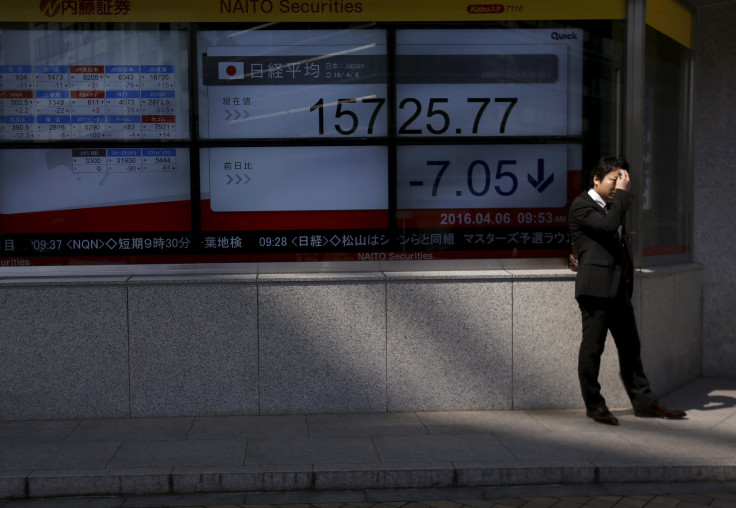Asian Stocks Wary Ahead Of Fed; Oil Loses Momentum

Asian stocks were on the defensive on Tuesday after oil prices eased and as investors braced for central bank policy meetings in the United States and Japan later this week.
MSCI's broadest index of Asia-Pacific shares outside Japan was down 0.1 percent, while Japan's Nikkei slipped 0.4 percent.
U.S. stock prices fell on Monday as weaker oil prices weighed on energy shares, with the S&P 500 dipping 0.18 percent to 2,088, slipping further from a 4 1/2-month closing high of 2,102 hit last Wednesday.
On Monday, Saudi Arabia unveiled ambitious plans to transform its oil-dependent economy, centering on a partial privatization of state oil company Saudi Aramco.
The company, sitting on crude reserves of more than 15 percent of global oil deposits, is expected to be valued at more than $2 trillion, or more than five times larger than Exxon Mobil, ahead of the sale of less than 5 percent of it through an initial public offering.
Oil prices lost steam following a rally to five-month highs last week, as data pointed to fresh U.S. crude builds. Leading banks in commodities also said the two-month oil market rebound has defied fundamentals.
Brent crude traded at $44.71 per barrel, down 0.9 percent so far this week, off its five-month high of $46.18 hit last week.
Investors are cautious on buying riskier assets ahead of the U.S. Federal Reserve's two-day policy meeting starting later on Tuesday.
A surprise drop in new U.S. home sales data for March published on Monday supported a view of anemic U.S. economic growth, which may keep the U.S. central bank from raising interest rates.
In fact, markets sees no chance of a rate increase at this week's meeting and are pricing in just about a 1 in 5 chance of a move at the next meeting, on June 14-15.
Yet, Federal Reserve officials have repeatedly said a hike in June is on the cards.
"Even dovish policy makers such as [Boston Fed President Eric] Rosengren are saying markets expectations are too low. And it is not hard to imagine many at the Fed feel current market rates are too low," said Tomoaki Shishido, fixed income strategist at Nomura Securities.
"So the Fed may try to urge markets to price in higher rates. On balance, we are more likely to have a hawkish surprise than a dovish surprise," he added.
Ahead of the Fed's meeting, the 10-year U.S. Treasuries yield to a four-week high of 1.914 percent on Monday. It last stood at 1.904 percent.
In the currency market, however, the dollar retreated against many major currencies while keeping an upper hand against emerging economy currencies.
The euro edged up to $1.1273, flat early Tuesday but maintaining a gain of 0.5 percent so far this week.
The dollar also sipped to 111.01 yen JPY= from three-week high of 111.90 touched early on Monday.
The yen weakened sharply on Friday on a report that the Bank of Japan is considering cutting rates at which the central bank lends money to banks. But doubts are growing about how effective such a measure would be in lifting the moribund economy.
The Bank of Japan will make its policy announcement on Thursday.
The British pound held near a 10-week high as bets on a Brexit eased after U.S. President Barack Obama voiced his support for Britain's staying in the European Union.
The pound rose to as high as $1.4520, its highest since mid-February and last stood at $1.4493, up 0.7 percent so far this week.
© Copyright Thomson Reuters {{Year}}. All rights reserved.





















